Rangatahi real talk at the Kapa Haka regionals
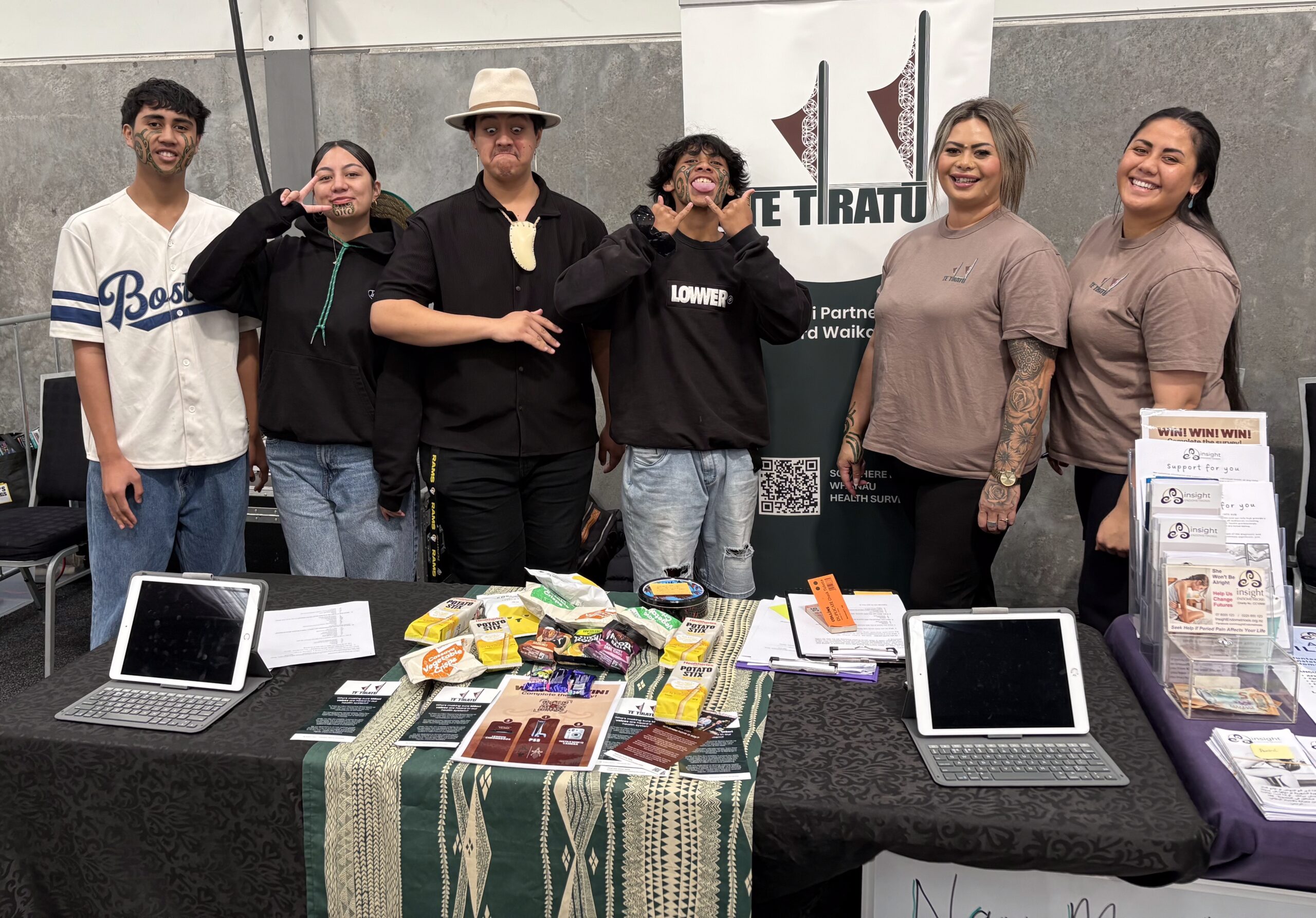
Photo: Rangatahi with Ngatini Torea and Raven Torea, Whānau Voice kaimahi
“We’re aware. We just need more support.”
That was the clear message from rangatahi and whānau who engaged with our Whānau Voice kaimahi at the inaugural Te Mokotini ki Tainui and Tainui Secondary School Kapa Haka regionals over the weekend. Alongside thousands gathered to celebrate te ao Māori, haka excellence, and hāpori, our Te Tiratū stand was part of a ‘Hauora Hub’ inside the doors of Claudelands Event Centre. The whare was humming with conversation — and concern. From rangatahi to kaumātua, whānau shared openly about their health journeys, what’s working, and what’s failing them.
What Our Rangatahi Are Saying
Across two days, rangatahi spoke frankly about what they’re facing. They’re switched on and vocal about the lack of mental health and sexual health education in schools — especially around hauora hinengaro. Many shared they learn more from social media than from the classroom. They know mental distress is a problem among their peers but feel unsupported by the current system. They want more—more kōrero, more guidance, and more honest talk in safe spaces. One rangatahi said it best: “We talk about it on TikTok, but not in class. That’s not right.”
Vaping: From “Cool” to “Can’t Stop”
We were alarmed by how widespread vaping is among rangatahi, particularly those aged 12 to 17. Nearly all told us they had easy access — either through shops not checking ID or older siblings buying on their behalf. What began as something “cool” quickly became something they couldn’t stop. Many now feel addicted. They want to quit, but said it’s hard — and support is scarce.
Their message was clear: restrictions aren’t enough. They believe a total ban is the only way to truly protect rangatahi. Importantly, they also called for earlier education, aimed at tamariki aged 10–12, before peer pressure kicks in and the dreaded addiction cycle begins.
Vaccination? Yes. Understanding It? Not So Much.
While most rangatahi had received their HPV vaccination at school, nearly none knew what it was for. One said: “I just signed the form. I didn’t even know what it was.”
This shows a huge gap in informed consent and health literacy. Our tamariki and rangatahi deserve to know what’s going into their tinana and why.
Primary Care: Cost, Wait Times & Whānau Avoiding Help
Whānau told us loud and clear: “If it’s not for the tamariki, we just don’t go.” The reasons are simple — long wait times and unaffordable costs. Standard GP visits range from $60 to $80, and after-hours care can be as high as $180. Many are turning to emergency departments by default, not because it’s ideal, but because it’s faster and more accessible. For some, the choice between paying rent or seeing a doctor isn’t really a choice — it’s about survival. While telehealth works for a few, unclear pricing has left others feeling misled — one whānau member was shocked when their father’s online consult cost more than an in-person visit.
Cancer Screening: Awareness Growing, But Gaps Remain
Many whānau had been screened for breast, cervical, or bowel cancer, but few had completed all three — and most had to initiate the process themselves, with little guidance from GPs or nurses. A registered nurse told us that while reminders appear in patient files, many health professionals simply overlook them. For wāhine, the screening experience was often described as cold and clinical, lacking cultural safety, with many feeling whakamā — exposed, undignified, and unlikely to return. There was positive feedback too, particularly around cervical screening reminders, which were clear and helpful, and the fast, reassuring turnaround times for breast screening results. However, follow-up care was inconsistent, and whānau made it clear they want more community-based education and engagement — they want to understand what to expect, why it matters, and how to access care before it becomes urgent.
Thank you For Your Truths
We’re deeply grateful to every whānau member and rangatahi who stopped by to share a laugh, a selfie, and a story — your voices are shaping the future of our hauora. Every kōrero is being carried forward in our regular reporting and meetings with Te Whatu Ora. We’re listening, and we thank you for trusting us with your truths.
Hauora at home: Everything under one roof in Whaingāroa
Poihākena Marae in Whaingāroa Raglan was the place to be this week as whānau gathered hauora check-ups, hosted by Toi Oranga in partnership with a range of local and visiting health providers. The open-door event invited whānau to drop in, share a cuppa, and check up on their wellbeing — all in a familiar, friendly environment.
Nurses were onsite offering general health checks, alongside a wide range of services including physiotherapy, mirimiri (traditional Māori bodywork), immunisation, cervical screening, and counselling. A Ministry of Social Development (MSD) staff member was also available.
Two Heart Foundation representatives were kept busy with blood pressure checks, while a local GP provided full consultations in a dedicated clinical space.
Having services close to home made a big difference, particularly for kaumātua who often face challenges accessing care, and for younger whānau looking for convenient, supportive options.
“Whānau felt more comfortable at the marae, and not having to travel far — and having everything under one roof in such a friendly space just made sense,” said Megan Tunks, one of our Whānau Voice kaimahi.
Predominantly Māori came, but some non-Māori as well. “They relaxed with a hot drink and some kai, connected with others, and visited different service providers while they waited.”
Many of the visiting providers, including the physiotherapist and mirimiri practitioners, were from the local community themselves — a powerful reminder of the strength and value of community-led solutions.
The kaupapa was simple and effective: bring health services to where whanau already feel safe, respected, and connected. The result? A whānau-first day grounded in manaakitanga, kaitiakitanga, and whanaungatanga— showing what’s possible when hauora is delivered with aroha.
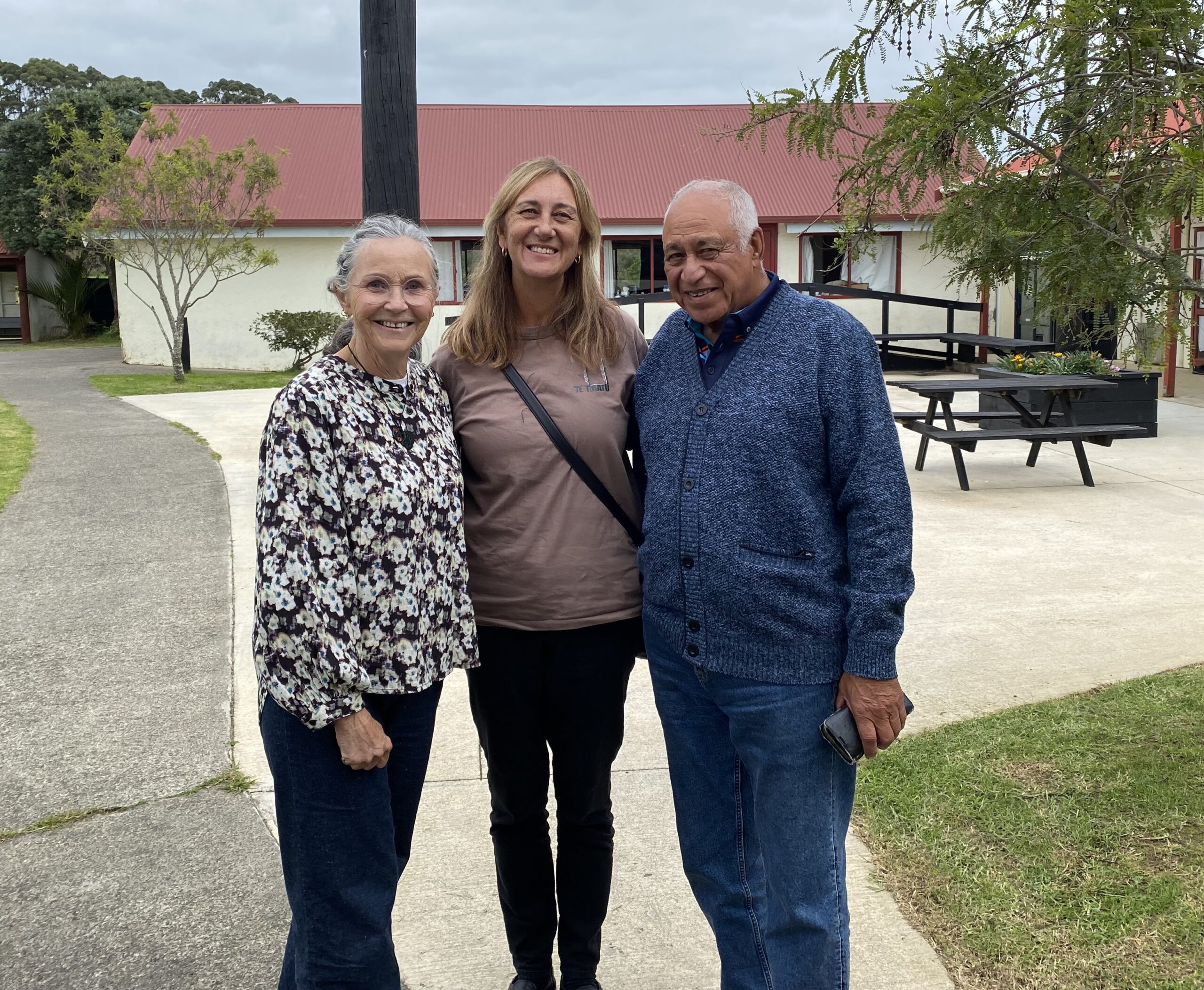
Photo: Lesley Thornley, a physiotherapist and daughter of the late Dr John “Digger” Penman, who served as the local GP from the 1940s to the late 1960s before being succeeded by Dr Ellison; Megan Tunks, Whānau Voice kaimahi with the Te Tiratū Iwi Māori Partnership Board; and Pablo Rickard, affectionately known as Whāingaroa Raglan’s ‘unofficial Mayor’.
From the Frontlines at Waahi Whaanui: Mental Health and Addiction Gaps
On the frontlines of whānau support, the cracks in the system are becoming impossible to ignore.
This week, our Whānau Voice team visited Waahi Whaanui in Raahui Pookeka-Huntly that was established in 1983 by the Tainui Maori Trust Board as one of its ten Marae Cluster Management Committees that works across a vast rohe — from Mercer in the north, to Raglan in the west, Te Hoe in the east, and Kirikiriroa in the south.
They deliver an impressive range of integrated services: Whānau Ora, parenting support, family violence response, social workers in schools, rangatahi transition services, alcohol and addiction support, and more. Deeply embedded in their hapori driven by a commitment to uplift whānau. But even with all their expertise, one reality stood out: they’re doing critical mahi with our people experiencing a health system under immense strain. The need is growing significantly, particularly for our rangatahi.
Mental Health: Access Denied by Distance and Delay
For Raahui Pookeka based whānau,often access mental health assessment is to travel half an hour to Hamilton. Once seen, they’re referred back to local services in Raahui Pookeka—services that are already under immense pressure.
The latest data from Te Hiringa Mahara – Mental Health and Wellbeing Commission backs this up:
- 16,000 fewer people were seen by specialist services in the year to June 2024, compared to 2021.
- More than 10,000 of them were under 25 years old.
- The drop isn’t because fewer people need help—it’s because they can’t get it.
This is a crisis. Not just of access, but of dignity.
Addiction Support Has a Waitlist—But Pain Doesn’t Wait
There’s a four-week wait to see an addiction counsellor at Waahi Whaanui. For some whānau, that’s a tipping point. There is limited alcohol and drug support for rangatahi under 18. We heard that many rangatahi are in crisis, with no place to turn.
Kaumātua Saving Up Their Pain
Kaumātua said they “save up” their health concerns because of cost and not wanting to be hōhā or overburden already stretched services.
It is not tika that they should feel like a burden. They carry our whakapapa, our mātauranga, our mauri. They should be cherished and prioritised.
The Numbers Are Stark—But Not New to Us
Māori in Waikato are:
- 9 times more likely than non-Māori to be hospitalised for any mental or substance use disorder
- 6 times more likely for schizophrenia
- 7 times more likely for substance and alcohol-related harm
- And an average of 225 Māori (mostly wāhine) are hospitalised for intentional self-harm each year
In Hamilton, over 2,000 Māori aren’t enrolled with a GP—shut out from the most basic preventative care.
Where to From Here?
What we saw was a failure of the health system to support providers like Waahi Whaanui who are under pressure, the increased caseload of kaimahi carrying too much without the resources they need, and whānau trying to hold on without falling through the cracks.
We stand alongside them—and we raise their voices.
Last week the Government announced a $28 million investment over four years in Budget 2025 to shift the response to 111 mental distress calls from Police to mental health professionals. For frontline providers like Waahi Whaanui it will take far more to address the deep gaps in accessibility, workforce, and culturally grounded care.
Te Tiratū is calling for:
Providers to be adequately resourced to cope with the increasing demand on services
- A focus on services for rangatahi under 18 that are locally relevant and accessible
- Appropriate whanau orientated triage processes
- Culturally grounded, local solutions led by whānau, hapū and iwi
Te Tiratū will continue to amplify your voice until the system listens.
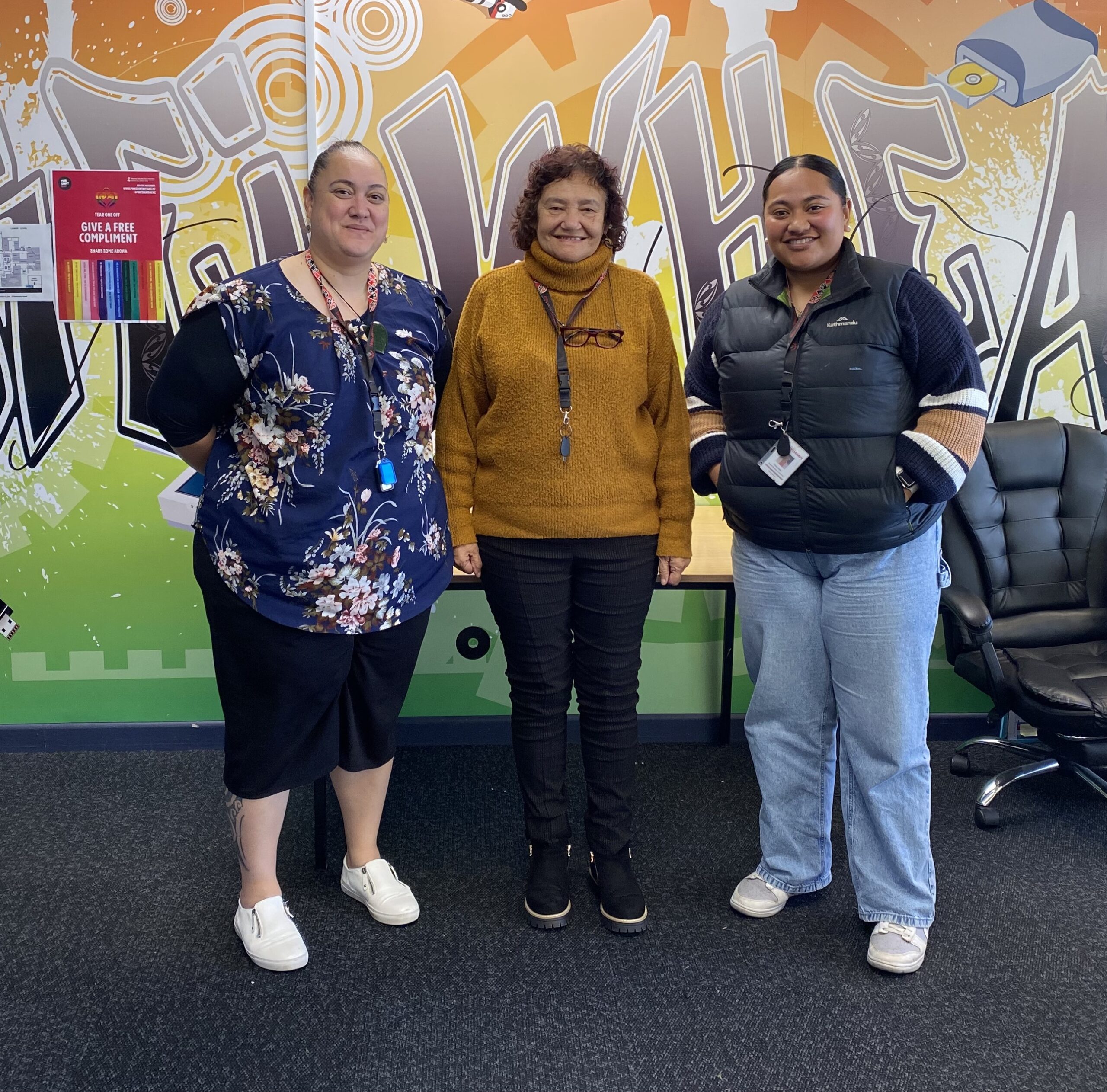
From left to right: Rawinia Marsh – Integrated Services Manager Waahi Whaanui Trust, Fiona Helu and Hemi-Lee Morgan – Whānau Ora Team.
Maniapoto rising: “We know what works”
Our Whānau Voice kaimahi and Tumu Whakarae attended a recent hui held at Te Kūiti, hosted by Maniapoto Marae Pact Trust where a strong and heartfelt kōrero unfolded about the state of hauora for whānau across the Maniapoto rohe.
Frontline kaimahi, whānau navigators, and community leaders — including CEO Shirley Turner — came together to shine a light on what’s working, what whānau are asking for, and where the system is falling short.
“Our people know what works — we just need the system to back us,” Shirley said.
Maniapoto Marae Pact Trust offers a suite of integrated health and social services designed to walk alongside whānau, ensuring every door is the right door. These include:
- Kaiārahi Services – placing whānau at the centre, helping them define and lead their own goals across multiple service areas.
- Whānau Direct – offering fast, flexible support when whānau need it most.
- Disability support and mental health services, including social workers in schools.
- Tamariki Ora – a standout success story. The Tamariki Ora nurse and whānau navigator work together in the community, achieving strong immunisation rates despite not receiving equitable funding.
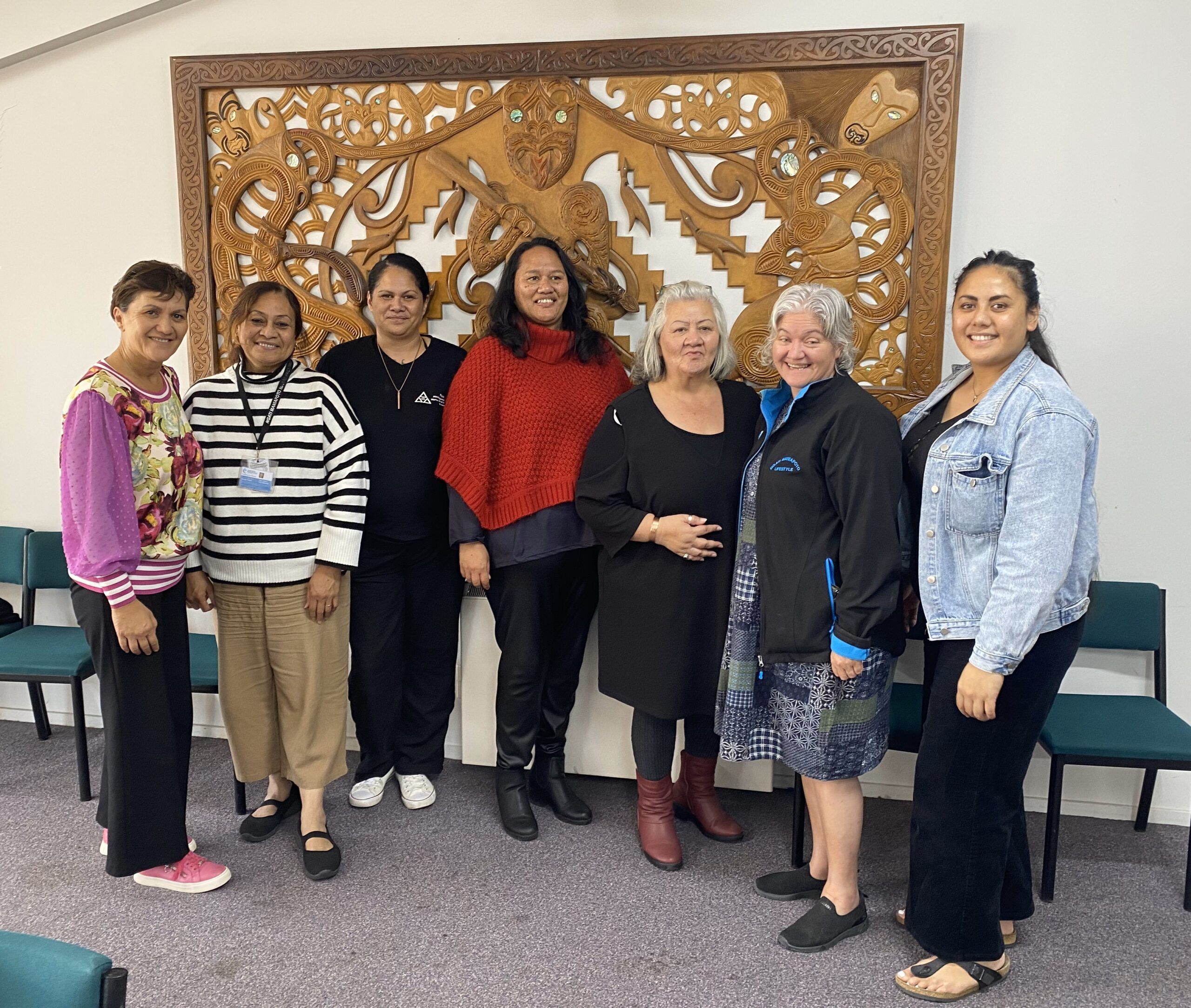
Photo from left to right: Te Tiratū Tumu Whakarae, Brandi Hudson with kaimahi of Maniapoto Marae Pact Trust – Sauaga Poliko, Lisa Kerekere, Rena Morgan, Honour Muraahi, Adrianna Astle and Raven Torea our Whānau Voice kaimahi
The Trust also contributes to Healthy Families Te Kūiti, with locals like Michelle Wi running weekly Māra Kai workshops on preserving, pickling, and food sovereignty — all part of a wider push for long-term wellbeing.
Shirley was clear about how the Trust works, “Whānau are in the driver’s seat — and that’s how it should be. Our services walk with them, not ahead of them.”
Systemic Challenges Undermining Equity
Despite these local strengths, systemic failures continue to undermine outcomes for Maniapoto whānau.
One striking example shared at the hui was of a kuia who was rushed by ambulance to Waikato Hospital with minimal belongings, only to be sent home later in a shuttle and left on the roadside.
It was only thanks to a member of the public contacting a local health worker that she made it home safely. This case highlights the urgent need for a more responsive, automatic travel support process — particularly around the National Travel Assistance (NTA) scheme.
“There needs to be a built-in, automatic system for whānau travel vouchers — not an afterthought.”
Other systemic concerns raised include:
- Falling through administrative cracks in post-hospital care and transport.
- No sustainable funding model for high-performing but underfunded services like Tamariki Ora.
- The need for better wellbeing measurement tools that reflect whānau realities.
- A desire for more regular, locally based specialist outreach, especially for kaumātua and kuia.
Networks and Ngā Kaupapa o te Rohe
The hui also acknowledged the strength of local collaborations — such as the Waitomo Community Health Forum and initiatives like Harvest to Home and Wai to Kai, which focus on food resilience, sovereignty, and wellbeing.
The message from Maniapoto is clear: local, kaupapa Māori solutions are working — but they need resourcing and system-level support.
“We’re seeing positive outcomes because our services reflect the lived reality of our whānau. But without equity in funding and process, our people continue to carry the cost,” said one kaimahi.
National immunisations up as Māori rate treads water
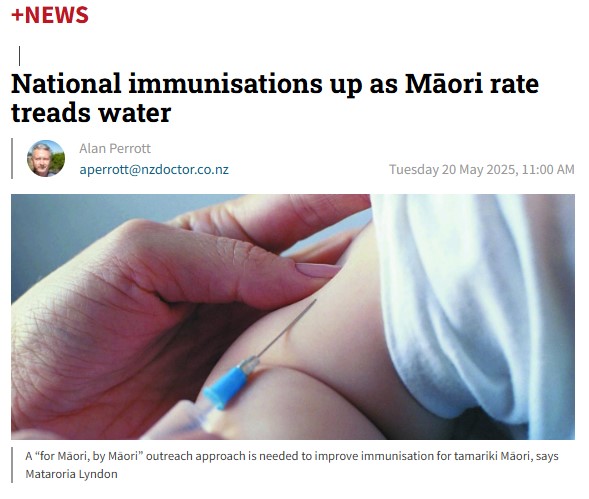
An uptick in overall immunisation rates for infants and young children is to be welcomed, but rates for tamariki Māori continue to lag, says Mataroria Lyndon.
The University of Auckland senior lecturer and member of Te Tiratū iwi Māori partnership board says it is important to recognise progress has been made, “but that does not necessarily reflect the reality for Māori and inequity”.
Data showing alarmingly low immunisation rates, delays, costs still undermining Māori Health
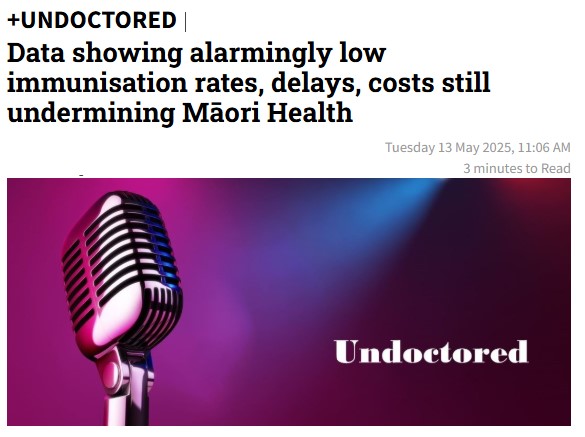
Te Tiratū Iwi Māori Partnership Board April Whānau Voice Report mirrored by Te Whatu Ora data has evidenced immunisation rates 33% lower than the national average, widespread inequities, long wait times, and unaffordable care still plaguing whānau Māori in its Tainui waka rohe.
Elevating Whānau Voices at Te Matatini 2025
Our dedicated Whānau Voice team from Te Tiratū IMPB, who travel across our rohe, proudly attended Te Matatini o Te Kāhui Maunga 2025 in February.
While 55 incredible groups took the stage at Pukekura/Bowl of Brooklands, the real magic happened behind the scenes—a cherished time of whakawhanaungatanga with the Māori backbone of Hauora.
Ngā mihi nui to Te Punanga o Te Ao Iwi Māori Partnership Board in Taranaki for your manaakitanga. Congratulations to Te Kapa Haka o Ngāti Whakaue for claiming the championship title!
Throughout the event, we connected with a diverse cross-section of hāpori—whānau, dedicated Māori health providers, rangahau leading vital research, expert Hauora advisors, peak bodies, professors, and public servants—all committed to strengthening our collective wellbeing.
Special mihi to all the wonderful kaimahi at Te Atawhai o Te Ao Independent Māori Institute for Environment & Health, New Zealand Heart Foundation, Cancer Society, Te Rau Ora, Toi Tangata, Manawa Ora, Te Ataaranga Trust, Netsafe, Office of Vice Chancellor Māori at Te Whare Wānanga o Waikato, Māori Health Directorate and National Public Health Service at Te Whatu Ora.
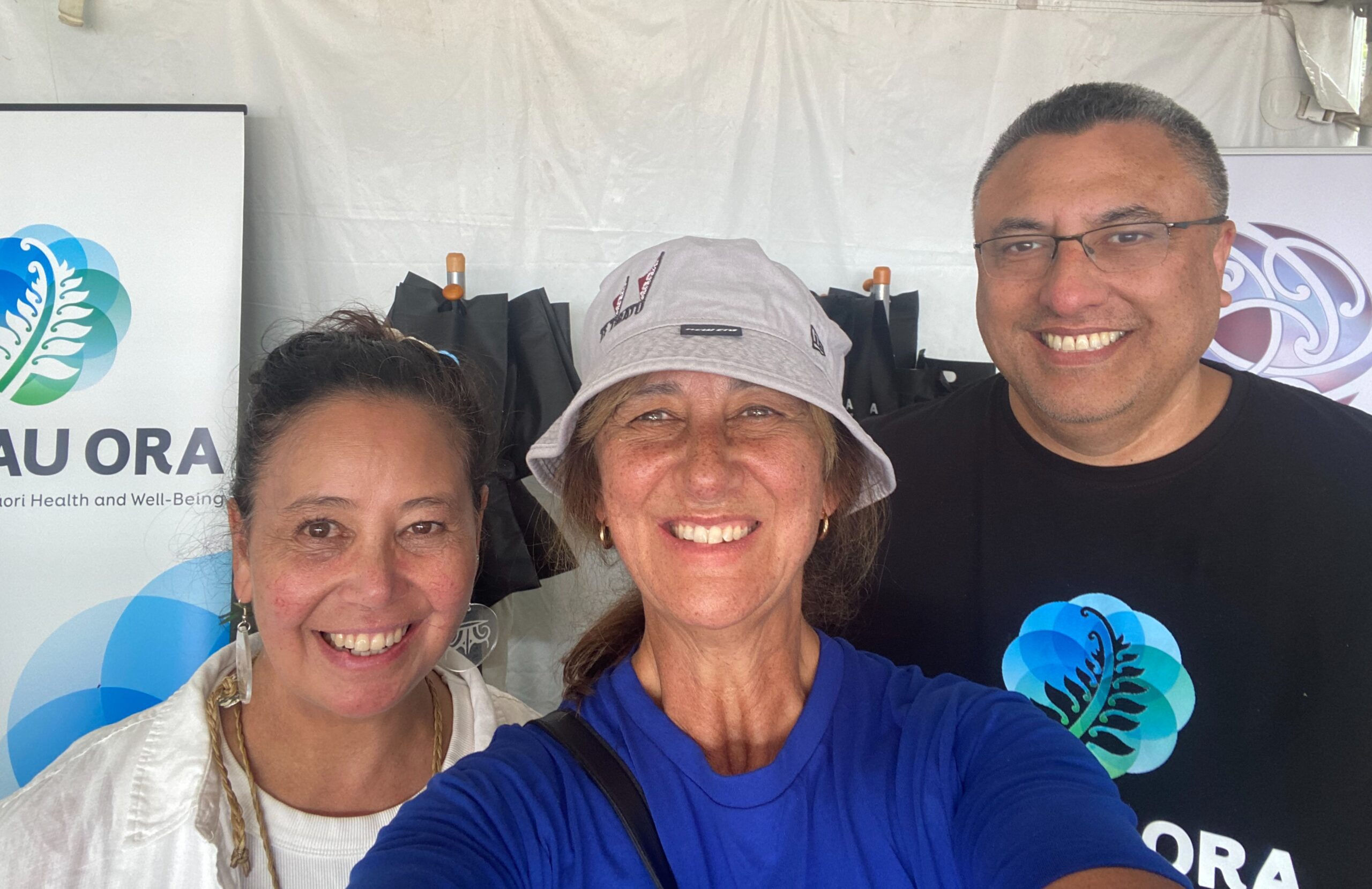
Photo: Marama Tauranga, Chief Nursing Advisor Māori Health Directorate Te Whatu Ora, Megan Tunks Te TiratūIMPB Whanau Voice, Riki Nia Nia CE Te Rau Ora
Keep an eye out for our distinctive Te Tiratū flag flying proudly at local events across the rohe this year!
Our team will be there to listen to whānau about what being healthy and well looks like, what is working well or not working well, what is the biggest health or wellbeing challenge, what would make it easier to access the support, how can health services be improved?
Because the statutory role of Te Tiratū is to advocate for whānau trying to navigate the complex health system, especially with the many changes happening at the moment.
The ripple effects of uncertainty and instability in the health system on whānau are profound, particularly for those facing serious health conditions like cancer.
We tautoko the ongoing pain points faced by whānau when accessing healthcare such as the cost and long wait times for GP appointments, transport and parking issues at hospitals, and lack of kai and comfort during visits.
Through Whānau Voice we are collecting all your whakaaro in our regular reports to Te Whatu Ora to play out part in transforming the health system so it is accessible and equitable for our hāpori.
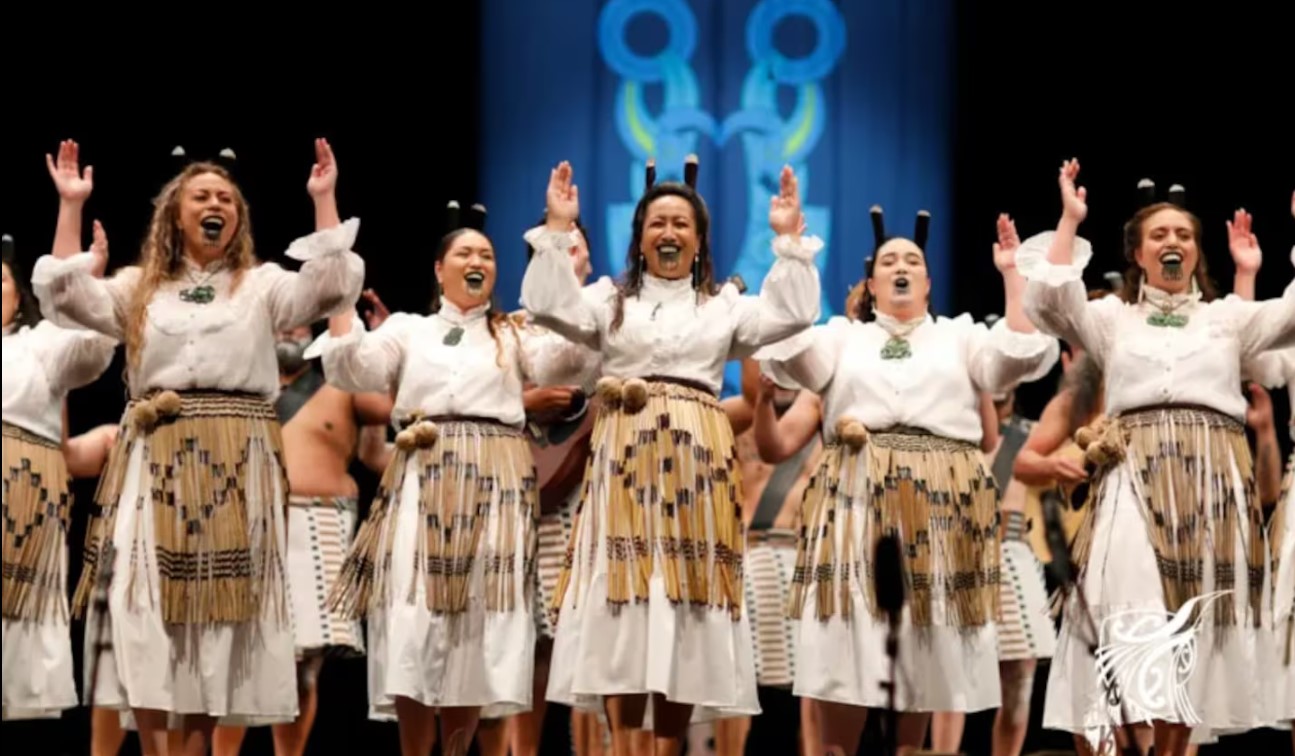
Photo: Credited to Te Matatini Enterprises via NZHerald
